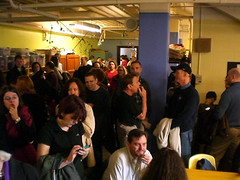I really appreciated Paul Mero’s take on efforts to change our caucus and convention system. Unlike Mr. Mero, I’m not well enough connected to be invited to take part in private meetings regarding how to change Utah’s caucus and convention system. On that particular issue that is the largest of our differences.
Like Mr. Mero I have been annoyed at the misinformation that I have seen spread by and among delegates with extreme positions on a number of issues – HB 166 among them. Like Mr. Mero, I have tried to pay attention to the efforts to change the caucus/convention system but I have not found those proposed changes to warrant any particular support from me. The core of where my views align with those expressed by Mr. Mero are summed up in the following quote:
Yes, I’m sure some delegates have stated that they don’t want increased participation in the political process. But, to be fair, most of those voices are more concerned about how blissfully ignorant most Utahns are about the world around them than those voices are about consuming political power. So, yes, these delegates do believe they are better informed and for good reason – most of them are! Not all of them have the right answers, for sure. But it’s a bit disingenuous of my friend to chastise any serious citizen for wanting her candidate to be elected or her policy to become law – for heaven’s sake, that’s exactly what everyone wants!…
If reformers want their candidates elected to office, they should make a case that appeals to the most responsible citizens who take time to engage in a democratic process that has served this state since its founding.
